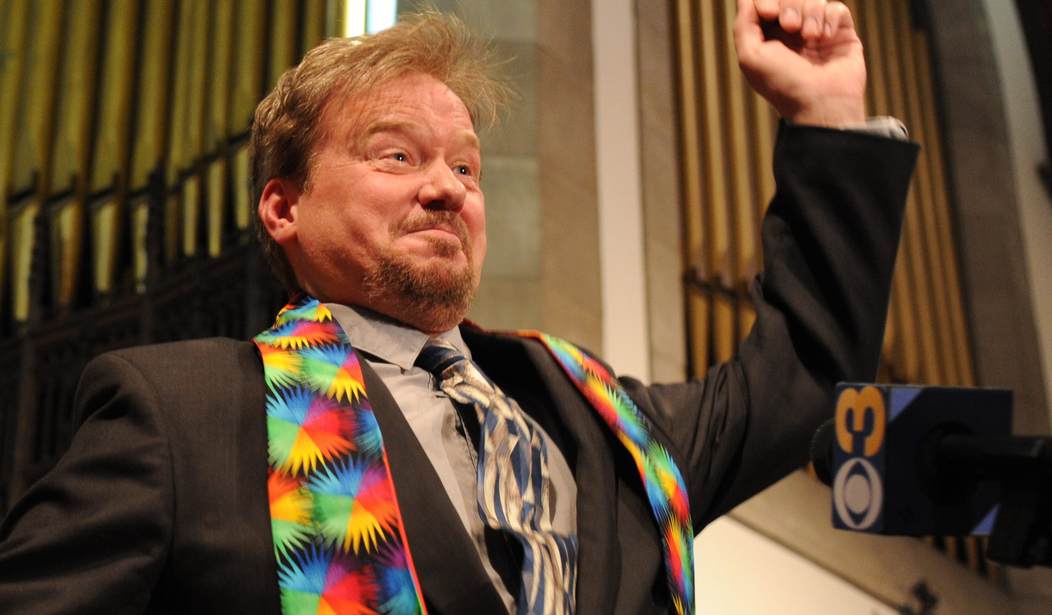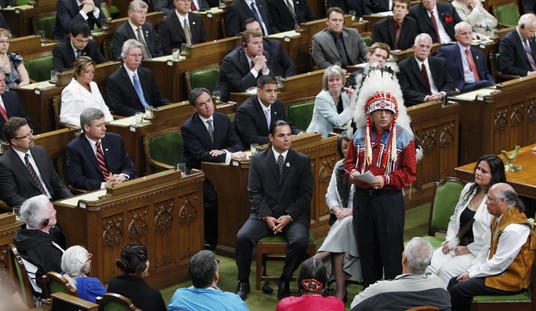In December 2016, the United Methodist Church’s Council of Bishops announced that the denomination would be spending 75 weeks in prayer over affirming homosexuality. Starting on Jan. 1, 2017, the plan was to “wrap up in the West Angola Episcopal area in June 2018.” Well, the progressive mainline denomination apparently didn’t pray for the whole 75 weeks because the Council of Bishops issued a press release on May 4 announcing that they’ve decided on a plan that will be put to a vote at a Special Session of the General Conference in 2019.
During a recent meeting in Chicago, the UMC’s Council of Bishops debated three proposed plans: The Traditionalist Plan, the One Church Plan, and the Connectional Conference Plan. They agreed to recommend the One Church Plan.
According to the press release, the plan:
…allows for contextualization of language about human sexuality in support of the mission; and allows for central conferences, especially those in Africa, to retain their disciplinary authority to adapt the Book of Discipline and continue to include traditional language and values while fulfilling the vision of a global and multicultural church.
This plan also encourages a generous unity by giving United Methodists the ability to address different missional contexts in ways that reflect their theological convictions. The One Church Plan removes the restrictive language of the Book of Discipline and adds assurances to pastors and Conferences who due to their theological convictions cannot perform same-sex weddings or ordain self-avowed practicing homosexuals.
In other words, the United Methodist Church’s Council of Bishops is recommending that the denomination sit squarely on the middle of the fence. However, the other two plans will still be available to be voted on at next year’s General Conference. The Traditionalist Plan would retain the UMC’s language concerning human sexuality. The Connectional-Conference Plan allows regional conferences the authority to decide what stance on human sexuality they will take.
The One Church Plan will remove any language that prevents churches from officially conducting same-sex marriages and ordaining LGBTQ individuals as ministers if they want. But it also provides freedom for conservative churches to preach and practice what they believe the Bible teaches about sexuality. Frankly, the One Church Plan doesn’t sound that much different from The Connectional-Conference Plan.
About a year and a half ago, I wrote in an article about the UMC’s 75 weeks of prayer:
The cynic in me wants to claim that these seventy-five weeks are actually a buffer that the Council of Bishops has given itself in order to figure out how to prevent the probably inevitable exodus of tithing members once they announce what the UMC Bishops have already decided.
On one hand, I’ve got to give credit to the Council of Bishops. They appear to have come up with a solution that will probably keep the largest number of people happy, staving off, to a degree, the mass exodus of tithing members that I predicted—for now. I included the “for now” because, on the other hand, I believe that they’re simply kicking the can down the road.
Ultimately, if the One Church Plan passes, conservative churches that desire to obey God in all things, including God’s parameters for sexuality, will continue to become uncomfortable at the growing apostasy of their sister churches in the UMC. Likewise, the progressive churches that desire to please man instead of God will continue to be disgusted by what they perceive as bigotry and homophobia from their more conservative sister churches in the UMC.
The issue of homosexuality is not an ideological fence that can be straddled. Attempting to do so will eventually only serve to anger everyone involved. I’m afraid that the UMC Council of Bishops has sacrificed obedience toward God and the long-term health of the denomination in order to take what appears to be the easiest road.









Join the conversation as a VIP Member